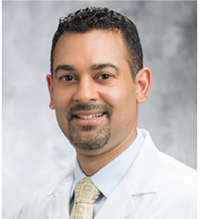By Dr Nayan Patel
Nayan Patel DO is a Gastroenterologist and Hepatologist with Arizona Digestive Health in Scottsdale.
 This past year was dominated by the COVID-19 pandemic. We had a lot to worry about, and many of us have put our lives on hold, including routine medical care. I wanted to discuss the importance of cancer screening. Cancer screening is done to identify disease at an early stage. The basic premise is that early detection of cancer can lead to eventual cure and improved outcomes. There is data suggesting delayed cancer screening during the COVID-19 pandemic will lead to diagnosis of cancers at later stages.
This past year was dominated by the COVID-19 pandemic. We had a lot to worry about, and many of us have put our lives on hold, including routine medical care. I wanted to discuss the importance of cancer screening. Cancer screening is done to identify disease at an early stage. The basic premise is that early detection of cancer can lead to eventual cure and improved outcomes. There is data suggesting delayed cancer screening during the COVID-19 pandemic will lead to diagnosis of cancers at later stages.
Cancer is the second leading cause of death in the United States, with heart disease the first. Cancer can develop at any age, however most often occurs in middle age. The risk of cancer also increases as we age. The lifetime risk for developing cancer is nearly one half in men, and one third in woman.
As a gastroenterologist, I am going to focus on the importance of colon cancer screening. Colon cancer is the 2nd most common cancer in the US. Risk factors include age (about 90% diagnosed in patients over age 50), tobacco, family history, obesity, heavy alcohol, sedentary lifestyle, colon polyps, and a diet high in red meat. Certain colon polyps are precursors to colon cancer, and are considered precancerous. Signs of colon cancer may include blood in stool, change in stool caliber or bowel habits, and abdominal pain.
Over the last 2 decades, as a result of improvements in early detection and treatment, colon cancer cases and deaths have been decreasing. However, when we look at the numbers closer, the improvements have occurred mainly in the age 50 and older age group. A particular concern has been an increase in cases of colon cancer in a younger population. For 2020, it is estimated that about 12% of colon cancer cases will be in patients less than 50 – about 18,000 cases. The reason for this is not known, but likely related to lifestyle and dietary factors.
Currently only about 70% of the population aged 50 to 75 are up to date on colon cancer screening. The age at which screening for colon cancer begins depends on one’s risk. In patients at higher risk which are those with a family history of colon cancer or polyps, generally screening starts at age 40 or earlier. Average risk patients are those without a family history. Recent recommendations from the American Cancer Society and United States Preventative Services Task Force (USPSTF) are to start screening at age 45 in average risk patients because of increasing incidences of colon cancer in a younger population. Screening is to be individualized in those between age 75 and 85 years old based on functional status and life expectancy.
There are several screening options to consider. The only screening test in those with a family history of colon cancer or polyps is a colonoscopy. Screening options in average risk patients include a colonoscopy every 10 years, stool fecal immunochemical test (FIT) every 1 to 3 years based on which type of test is taken, sigmoidoscopy every 5 years, or CT colonography every 5 years. An important distinction to remember is that colonoscopy is the only test that can both detect, and prevent colon cancer by removing colon polyps during the procedure. Additionally, if any of the other screening modalities are positive, a colonoscopy must be performed. You should talk to your gastroenterologist or health care provider about the differences in screening options. A screening test for colon cancer is generally mandated to be covered by your insurance company. In depth information regarding colon cancer screening is also available at my practices website: www.arizonadigestivehealth.com.
For the most part, many diseases can be prevented with a well-balanced diet, exercise, avoiding tobacco and excess alcohol, and maintaining a normal body weight. Unfortunately, even by doing everything right, we can develop cancer. Earlier detection of cancer leads to earlier treatment and the potential for a cure. We should also be serious about any symptoms we encounter. Any symptoms of blood in the stool, change in bowel movements, and abdominal pain; however minor one may consider them, should be investigated further. Now that the COVID pandemic is improving, I would encourage every reader to discuss cancer screening with their healthcare professional or specialist.
 Nayan Patel DO is a Gastroenterologist and Hepatologist with Arizona Digestive Health in Scottsdale.
Nayan Patel DO is a Gastroenterologist and Hepatologist with Arizona Digestive Health in Scottsdale.
Website: www.arizonadigestivehealth.com
Social Media: Instagram @scottsdalegastro

















